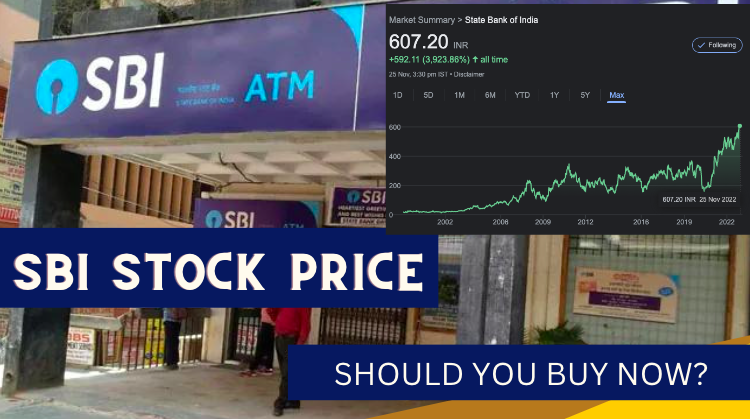When deciding between brokers and investment apps for managing your investments, it’s crucial to understand the advantages and limitations of each option. Traditional brokers offer personalized advice, comprehensive research, and a tailored investment strategy, making them ideal for investors seeking expert guidance and complex portfolio management. On the other hand, investment apps provide a user-friendly interface, low fees, and the convenience of managing investments on the go. They are well-suited for those who prefer a more hands-on approach with automated tools and lower costs. Evaluating your investment goals, expertise, and desired level of involvement will help determine the best choice for your needs.

Understanding Traditional Brokers
Traditional brokers serve as professional intermediaries offering personalized investment advice, in-depth research, and tailored portfolio management. Unlike automated platforms, brokers provide customized strategies aligned with your financial goals, risk tolerance, and current market conditions. They work directly with clients, delivering detailed analysis and recommendations on a range of investment options, including stocks, bonds, and mutual funds. Brokers also grant access to exclusive investment opportunities and valuable industry insights that online platforms might not provide.
While brokers offer significant expertise and personalized service, they often come with higher fees or commissions. These costs reflect the hands-on nature of their service and can be advantageous for investors seeking expert guidance, especially with complex financial decisions or retirement planning. However, it’s important to consider the potential for higher costs and conflicts of interest, such as commission-driven advice, when choosing traditional brokerage services.
Exploring Investment Apps
Investment apps are revolutionizing the investment world by offering a cost-effective and user-friendly alternative to traditional brokers. These platforms allow investors to manage their portfolios from smartphones or computers, often with lower fees. Investment apps come with various features such as automated investment tools, real-time market data, and educational resources, making them accessible to both new and seasoned investors. They typically use algorithms to recommend investment options and manage portfolios according to preset criteria, streamlining the decision-making process.
However, while investment apps provide lower costs and added convenience, they may lack the personalized advice and comprehensive strategies offered by traditional brokers. The automated nature of these apps might mean missing out on tailored guidance and exclusive investment opportunities. Thus, investment apps are ideal for those who prefer a hands-on approach with minimal expenses, but they may not fully satisfy investors needing detailed financial planning and customized service.
Comparing Broker and App Features
| Feature | Traditional Broker | Investment App |
|---|---|---|
| Personalized Advice | Yes, tailored to individual financial goals | No, relies on algorithms and predefined criteria |
| Cost | Typically higher fees and commissions | Generally lower fees and no commissions |
| Portfolio Management | Hands-on, with in-depth analysis | Automated, based on algorithms |
| Access to Investment Options | Broad access, including exclusive opportunities | Standard options, may lack exclusivity |
| Research and Insights | Extensive research and industry insights | Basic market data and educational resources |
| Customer Interaction | One-on-one service with personal interaction | Self-service, minimal human interaction |
| Convenience | Limited to office hours, requires appointments | 24/7 access from smartphones and computers |
| Expertise | High, with professional guidance | Lower, with automated tools |
| Suitability | Ideal for complex financial needs | Ideal for hands-on, cost-conscious investors |
Cost Comparison between Broker and App Features
When comparing costs, traditional brokers and investment apps show a notable disparity. Traditional brokers usually have higher fees and commissions due to the personalized services and detailed analysis they provide. These costs can encompass trading commissions, advisory fees, and account maintenance charges, reflecting the value of hands-on, professional guidance and customized strategies.
On the other hand, investment apps generally offer lower fees and often eliminate commissions. This affordability is achieved through automation and reduced need for personal interaction. The streamlined, algorithm-driven approach of these apps helps minimize costs, making them a cost-effective option for investors. However, it is essential to consider that while investment apps reduce expenses, they may lack the personalized advice and exclusive investment opportunities available through traditional brokers. Weighing these factors is crucial for investors choosing between cost savings and the benefits of expert guidance.
Suitability for Different Investors
The choice between traditional brokers and investment apps hinges on individual investor preferences and needs. Traditional brokers are best suited for those who seek personalized advice and complex financial strategies. Their expert, one-on-one service is valuable for investors dealing with intricate portfolios or needing detailed financial planning. These brokers provide tailored guidance and access to exclusive investment opportunities, making them ideal for those willing to pay higher fees for these benefits.
In contrast, investment apps are more appropriate for investors who prefer a cost-effective, hands-on approach. These platforms offer convenience and lower fees, appealing to those who are comfortable managing their investments independently. Investment apps provide real-time data, automated tools, and affordability, which can be attractive for cost-conscious investors. However, this comes at the expense of personalized advice and comprehensive strategies. Ultimately, the decision depends on whether you value cost savings and convenience or expert guidance and detailed analysis.
Advantages and Disadvantages of Brokers
Pros:
- Personalized Advice: Brokers offer tailored financial strategies and one-on-one consultations, ideal for complex financial situations.
- Expertise: They provide in-depth market analysis and access to exclusive investment opportunities.
- Comprehensive Service: Brokers assist with various aspects of financial planning, including tax strategies and retirement planning.
Cons:
- Higher Costs: Brokers typically charge higher fees and commissions, which can add up over time.
- Potential Conflicts: Commission-based recommendations might lead to conflicts of interest.
- Less Convenience: Access to brokers is often limited to office hours and requires appointments.
Advantages and Disadvantages of Investment Apps
Pros:
- Cost-Effective: Lower fees and often no commissions make these apps affordable.
- Convenience: Users can manage investments 24/7 from their smartphones or computers.
- Automated Tools: Apps offer real-time data and automated portfolio management.
Cons:
- Limited Personalization: They lack tailored advice and may not address complex financial needs.
- Basic Features: Investment options and research may be less comprehensive compared to brokers.
- Minimal Interaction: Limited human contact can be a drawback for those needing personalized support.
How to Choose the Right Option
Choosing between a traditional broker and an investment app depends on your individual needs and preferences. If you require personalized advice, expert guidance, and in-depth financial planning, a traditional broker may be the better choice despite the higher costs. They offer tailored strategies and exclusive investment opportunities suited for complex portfolios. Conversely, if you prefer a cost-effective solution with 24/7 access and automated tools, an investment app could be ideal. These platforms are best for hands-on investors who are comfortable managing their own portfolios and value convenience over personalized service.
Conclusion
Traditional brokers offer personalized advice, in-depth analysis, and access to exclusive opportunities, making them suitable for complex financial needs and those valuing expert guidance. However, they come with higher fees and less convenience. Investment apps, on the other hand, provide a cost-effective, convenient solution with automated tools and real-time data, ideal for hands-on investors comfortable managing their portfolios independently. Ultimately, the choice depends on whether you prioritize personalized service and comprehensive strategies or affordability and convenience.
Frequently Asked Questions (FAQs)
1. What is the main difference between traditional brokers and investment apps?
Traditional brokers offer personalized advice and in-depth portfolio management with higher fees, while investment apps provide a cost-effective, automated approach with lower fees and 24/7 access, but with less personalized guidance.
2. Are investment apps suitable for beginners?
Yes, investment apps are often user-friendly and include educational resources, making them a good option for beginners who prefer a hands-on approach with lower costs and automated tools.
3. Can I access exclusive investment opportunities through investment apps?
Typically, investment apps provide standard investment options and may not offer the same exclusive opportunities available through traditional brokers, who often have access to a broader range of investment products.
Read More:
- Mutual Funds and Taxes: How Income Tax Slabs Affect Your Returns
- What are tax-free annuity exchanges?
- 13 tax-free incomes in India – every investor should know
- Tax Return Tips for Last-Minute Filers

Hello, I am Tanisha Kriplani, graduated in computer science from Delhi University. I am passionate about web content writing and have a strong interest in Data Analytics and Data Engineering.












